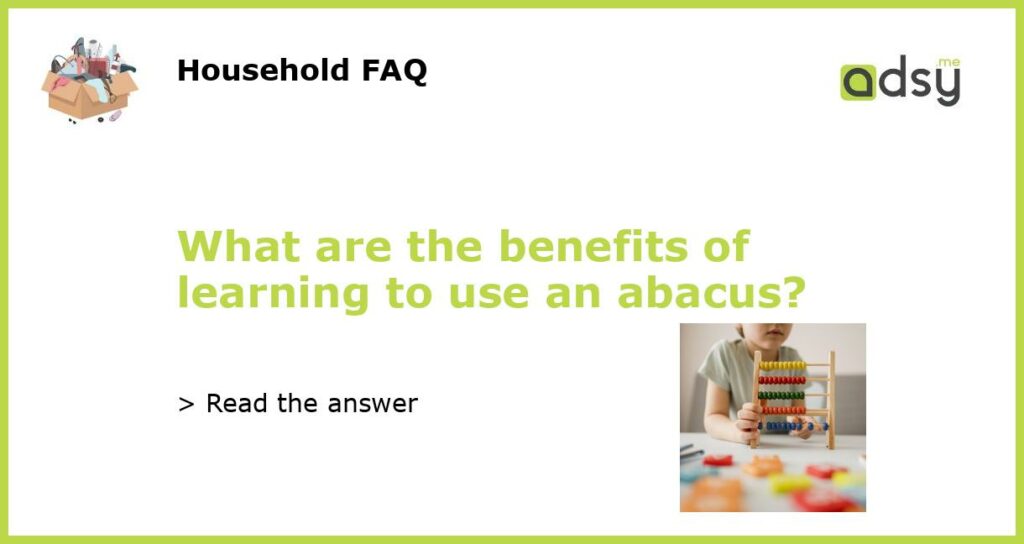The Benefits of Learning to Use an Abacus
Learning to use an abacus is a skill that can offer a range of benefits, from improved mathematical abilities to enhanced cognitive function. This ancient tool has been used for thousands of years to help people perform calculations quickly and accurately, and the benefits it offers are just as relevant today as they were centuries ago. Here are just some of the ways learning to use an abacus can benefit you or your child.
Improved Mathematical Abilities
One of the most obvious benefits of learning to use an abacus is improved mathematical ability. Using an abacus helps children to develop a deeper understanding of numbers and counting, as well as improving their ability to perform mental arithmetic. By using an abacus, children can visualize the relationships between numbers and see how they can be combined or broken down in different ways.
Enhanced Cognitive Function
Learning to use an abacus doesn’t just improve mathematical abilities – it can also enhance cognitive function more broadly. Using an abacus requires focus, attention to detail, and the ability to visualize and manipulate numbers in your mind. These skills can help to improve memory, concentration, and problem-solving abilities, as well as boosting overall brain function.
Cultural Appreciation
Aside from the practical benefits, learning to use an abacus can also offer cultural appreciation. This ancient tool has a rich history in many cultures, including China, Japan, and the countries of the Middle East. By learning to use an abacus, children can gain a deeper understanding of these cultures and their contributions to mathematics and technology. In addition, learning about other cultures can help to foster empathy, understanding, and global awareness.
Fun and Engaging
Finally, one of the simplest yet most important benefits of learning to use an abacus is that it can be fun and engaging. Children love hands-on activities and learning, and the satisfaction of performing calculations accurately and quickly can be very rewarding. By making learning a fun and positive experience, children are more likely to continue to engage with mathematics and pursue STEM subjects later in life.






